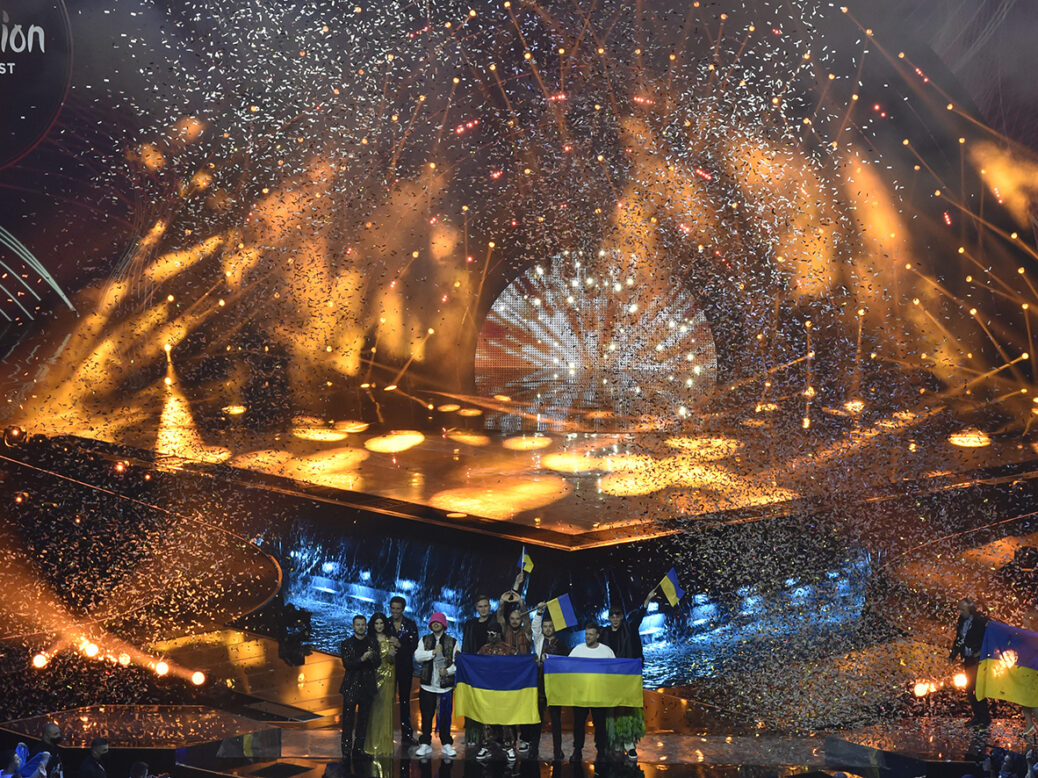
The grand final of the Eurovision Song Contest always feels exciting, but on Saturday night (14 May) inside the Pala Alpitour arena in Turin, I could tell that I was about to be part of a unique moment. The show contained its usual mix of camp fun, incredible spectacle and sudden moments of genuine talent – and, as the first all-out, in-person iteration of the contest since the pandemic began, there was also a sense of celebration and relief in the air all week.
That feeling was reflected in the results. Moldova’s Zdob şi Zdub & Advahov Brothers brought the crowd to their feet with a catchy number about a train journey, “Trenuletul” – so it was no surprise they came second in the televote, and seventh overall. As a British fan, it was particularly special to see the UK entrant, Sam Ryder, turn our historically dismal fortunes around. His song “Space Man” not only impressed the juries, but viewers across the continent: 35 out of 39 countries voted for it, and it came fifth in the televote. His overall second place was well deserved, and serves as vindication for the team at the BBC (especially the executive producer Lee Smithurst), who have been desperate to get the UK to love Eurovision again.
But the UK wasn’t the story. The atmosphere throughout was one of love for Ukraine, from the very opening of the contest (“Give Peace a Chance” was played, the crowd chanting along) to the messages of support delivered by other artists on stage. The country’s entry, “Stefania” by Kalush Orchestra, was just the right song at just the right time – and the European public gave it 439 points out of a maximum of 480. It’s just a song contest, and a small gesture when considered alongside the struggle for survival inside the country – but it meant something to Ukrainians, too.
I met Maria and her son – two Ukrainian refugees currently living in France – at the train station the next day. The pair had been in Turin for the contest and were heading back to Paris; Maria asked me for a photo when she spotted I was wearing a T-shirt from the 2017 contest in Kyiv.
She had tears in her eyes as she remembered the moment Ukraine won and said seeing Europe express their support for the country was “amazing”. But her thoughts were mostly on when she’d be able to take her son back home to Kyiv. Maybe when she does, the Eurovision circus will be there to welcome her.
[See also: When Eurovision came to Liverpool]





